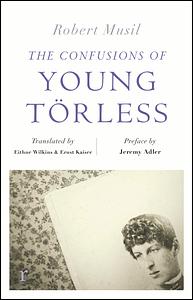Take a photo of a barcode or cover
"Los pensamientos tienen además instantes vivos e instantes muertos. Puede uno llegar a un genial conocimiento que, no obstante, se le marchita lentamente entre las manos como una flor. Queda la forma, pero los colores, el aroma, desaparecen."
challenging
dark
informative
reflective
fast-paced
Plot or Character Driven:
Character
Strong character development:
Complicated
Loveable characters:
Complicated
Diverse cast of characters:
No
Flaws of characters a main focus:
Yes
dark
reflective
tense
medium-paced
challenging
dark
reflective
tense
slow-paced
Plot or Character Driven:
Character
Strong character development:
Yes
Loveable characters:
No
Diverse cast of characters:
No
Flaws of characters a main focus:
Yes
challenging
dark
reflective
medium-paced
Plot or Character Driven:
A mix
Strong character development:
No
Loveable characters:
No
Diverse cast of characters:
Complicated
Flaws of characters a main focus:
Yes
The feeling of not being understood and of not understanding the world is no mere accompaniment of first passion, but its sole non-accidental cause. And the passion itself is a panic-stricken flight in which being together with the other means only a doubled solitude.
Well, how should I describe this?
I study psychology and one of my professors who teaches us gender psychology recommended The Confusions of Young Törless. From the way he talked about it, he made it seem like a coming-of-age book about a young boy who is conflicted about his sexuality. I was intrigued and once I discovered it on my university's library, I decided to give it a try.
That was a hectic yet interesting journey.
To be completely honest, the book fooled me into thinking that it would be a coming-of-age-story about Törless' confusions regarding society, his sexuality and his attempt to fit among his classmates. Oh boy, I was wrong. Because the novel was much more than that.
I found myself loving the writing. I don't know if it was because of the translation or not but in any case, it was lyrical and thought-provoking. The descriptions were vivid and detailed and the prose was great. There were many quotes that made me think for some minutes and the more I read, the more integrated I became into Törless' mind. The language was rich and it gave a gothic feeling in the novel that was enhanced by the whole setting.
Törless was a very interesting protagonist. He is consumed by thoughts about pride, power, masculinity, life, logic and sexuality and he is desperate to find the answers to all of these matters. At one point, his inner conflicts became my own. Törless worries are very typical for a youth like him and throughout the years, I too had the same thoughts like him. There have been times when I believed that no one understood me and that adults are not able to answer my question. Törless found himself trapped in an endless journey of questioning, understanding and doubt. He tries to find the answers he seeks in Maths and Philosophy but to no avail. He wants to discover himself but he doesn't know how - and he seems afraid to do so.
Because thoughts are something special. Often they are nothing more than accidents that pass away without leaving a trace, and thoughts, too, have their times to live and to die. We can have a flash of insight, and then, slowly, it fades beneath our touch like a flower. The form remains, but the colours, the scent are missing. We remember them word for word, and the logic of the sentence is completely unimpaired, and yet it drifts ceaselessly around on the surface of our minds and we feel none the richer for it. Until - perhaps several years later - all of a sudden another moment comes when we see that in the meantime we have known nothing of it, although logically we knew everything.
From the moment Törless' classmates, Beineberg and Reiting, decided to punish another student, Basini, for stealing money, the tone of the story became dark. Very dark. It was both amusing and terrifying to see how far human cruelty can go and how much pleasure one's pain can bring to others. I was deeply horrified and disgusted by the actions that were followed and it was really tempting to smash the heads of Törless' classmates.
It is remarkable to see how prophetic the book ended up being. Musil was aware of the impending crisis of European civilization which led into WW2 and it was honestly scary to see the similarities between Nazis, Beineberg and Reiting. How far one can go in order to discipline someone? How can peer pressure make someone do horrible things?
What I really found interesting was how Musil depicted the boarding school. It was fascinating to see the elitism and superiority complex Törless' classmates had, how Beineberg brought up his philosophy in order to showcase his intelligence and justify his actions and how both Beineberg and Reiting enjoyed torturing Basini. The book subtly criticizes the oppressive impact of educational institutions during this time and how little room or critical thinking they left (which still happens in our days).
Törless was conflicted about Basini's punishment. At first, he felt horrified when his classmates revealed their plans to him. He couldn't fathom how one could be so cruel towards another. Slowly, the darkness starts possessing him and he is caught in the web of a big dilemma. In the book, it is shown how he feels attracted by Basini and Beineberg (Törless, do you want to talk about it?) and how he resents them at the same time. He is reluctant to participate in Beineberg and Reiting's game but he is also drawn into the violence.
That being said, although I was deeply intrigued by the book and it's content, I wouldn't say that I loved it. It was thought-provoking indeed but I didn't feel any particular connection to it. At times, I found myself a little bit bored and I cannot say that I cared that much about the characters.
I am pleasantly surprised with this book, I didn't expect to like it as much as I did but I'd really love to read it again in the future (this time in English). I will also watch the movie about it and I might read Mussil's other works too.
Graphic: Sexual assault, Violence, Sexual harassment
Minor: Homophobia
dark
inspiring
tense
slow-paced
Plot or Character Driven:
Character
Strong character development:
Yes
Loveable characters:
Complicated
Diverse cast of characters:
Yes
"Gli sembrava che tutto quanto accadeva fosse ineluttabile; una morsa di pietra che costringeva tutta la sua vita in quel movimento, un passo dopo l'altro, lungo quella riga, lungo quella stretta striscia fra la polvere."
Quanto sei tormentato giovane Torless! Quanto sei pesante! In realtà le introspezioni filosofiche del giovane hanno parecchi spunti di riflessione anche interessanti (ammetto che ho sottolineato molto questo libro), MA..
.. ma TROPPE, troppo pesanti, troppo ridondanti, perfino troppo assurde (per me) se si pensa che escono dalla mente di un sedicenne.
Comunque una lettura stimolante, ma sicuramente non un libro facile.
"Qui ti volevo! Se pensi con la tua testa, non possono più raccontarti le loro storie. Lo fanno solo quando, dopo dieci anni di sgobbo, sei diventato maturo. Ma fino a quel giorno hai eseguito, basandoti su quei principi, migliaia di calcoli e innalzato grandi edifici, in modo perfetto. Devi credere, questo è il punto, credere nel modo in cui il cattolico crede alla rivelazione, la quale ha sempre fatto buona prova. Dopo di ciò, farti bere la risposta diventa uno scherzo. Nessuno, anzi, potrebbe farti capire che, sebbene il tuo edificio stia in piedi, ogni mattone, appena si tocca, diventa aria."
Quanto sei tormentato giovane Torless! Quanto sei pesante! In realtà le introspezioni filosofiche del giovane hanno parecchi spunti di riflessione anche interessanti (ammetto che ho sottolineato molto questo libro), MA..
.. ma TROPPE, troppo pesanti, troppo ridondanti, perfino troppo assurde (per me) se si pensa che escono dalla mente di un sedicenne.
Comunque una lettura stimolante, ma sicuramente non un libro facile.
"Qui ti volevo! Se pensi con la tua testa, non possono più raccontarti le loro storie. Lo fanno solo quando, dopo dieci anni di sgobbo, sei diventato maturo. Ma fino a quel giorno hai eseguito, basandoti su quei principi, migliaia di calcoli e innalzato grandi edifici, in modo perfetto. Devi credere, questo è il punto, credere nel modo in cui il cattolico crede alla rivelazione, la quale ha sempre fatto buona prova. Dopo di ciò, farti bere la risposta diventa uno scherzo. Nessuno, anzi, potrebbe farti capire che, sebbene il tuo edificio stia in piedi, ogni mattone, appena si tocca, diventa aria."
fast-paced
Gruesome yet fascinating.
The book is about four boys in a boarding school. One of them (Basini) is caught stealing by the other three and they decide to spare him from being reported to the school authorities, agreeing, instead, to punish him themselves. At first, it's basic humiliation and violence, but gradually it descends into severe beatings, disturbing sexual humiliation, and eventually sexual abuse. Meanwhile, Torless finds himself attracted to the boy and Basini reciprocates, leading to a series of sexual encounters which border on tenderness and love. But Torless is ashamed of this and finds himself growing ever more appalled by Basini.
I thought this book was fascinating. Partly, because it was published in 1906 and yet deals (very openly) with homosexuality, but mostly because it explores the human instinct for cruelty, shame, and horror. Musil is tapping into those human qualities which would inevitably lead to the rise of fascism, that human desire to have power over others combined with the need for social norms to be met (even in resistance to our own happiness). This urgent defence of normalcy is the driving force of western civilisation, and is so powerful that it fosters a kind of dull ignorance of our true selves and natures. Torless is clearly falling in love with Basini but knows that a heterosexual marriage to a woman is in his future -- this is the norm -- and so he hates himself for his feelings towards Basini but more explicitly, he hates Basini for having triggered them. It is this battle between rational and irrational which confuses him, though it also applies to his sexuality and his faltering grasp of morality. Reason fascinates him but there is a spiritual element -- an imaginary reality -- which always stands in the way of that reason.
The book isn't as beautifully written as The Man Without Qualities but it is more accessible. Sadly, there aren't many more works by Musil to read beyond these two (some short stories, I believe) which is a tragedy because he is a superb writer.
The book is about four boys in a boarding school. One of them (Basini) is caught stealing by the other three and they decide to spare him from being reported to the school authorities, agreeing, instead, to punish him themselves. At first, it's basic humiliation and violence, but gradually it descends into severe beatings, disturbing sexual humiliation, and eventually sexual abuse. Meanwhile, Torless finds himself attracted to the boy and Basini reciprocates, leading to a series of sexual encounters which border on tenderness and love. But Torless is ashamed of this and finds himself growing ever more appalled by Basini.
I thought this book was fascinating. Partly, because it was published in 1906 and yet deals (very openly) with homosexuality, but mostly because it explores the human instinct for cruelty, shame, and horror. Musil is tapping into those human qualities which would inevitably lead to the rise of fascism, that human desire to have power over others combined with the need for social norms to be met (even in resistance to our own happiness). This urgent defence of normalcy is the driving force of western civilisation, and is so powerful that it fosters a kind of dull ignorance of our true selves and natures. Torless is clearly falling in love with Basini but knows that a heterosexual marriage to a woman is in his future -- this is the norm -- and so he hates himself for his feelings towards Basini but more explicitly, he hates Basini for having triggered them. It is this battle between rational and irrational which confuses him, though it also applies to his sexuality and his faltering grasp of morality. Reason fascinates him but there is a spiritual element -- an imaginary reality -- which always stands in the way of that reason.
The book isn't as beautifully written as The Man Without Qualities but it is more accessible. Sadly, there aren't many more works by Musil to read beyond these two (some short stories, I believe) which is a tragedy because he is a superb writer.








